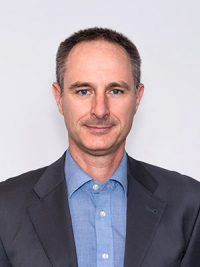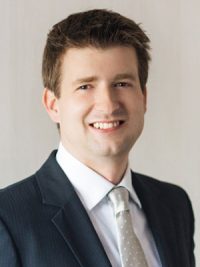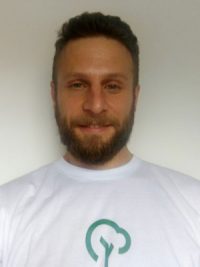WORKSHOP
Energy Communities for Citizen Participation in the Energy Network
Friday, 16 October 2020, Osijek, Croatia
“Following European Commission (EC) recommendations and its document “Guidelines to the Rules on Open Access to Scientific Publications and Open Access to Research Data in Horizon 2020″ we would like to inform you that interested audience can attend this workshop free of charge!”
In the context of fighting the climate change and reducing emissions of greenhouse gases, the use of renewable energy sources is essential. Yet the varying and uncertain nature of these sources entails the design and the implementation of a new model of the energy network. The old centralised energy distribution system is transitioning towards a smaller-scale, decentralised and democratized system, where individual prosumers can have a direct link to the power network. Energy communities appear to be meeting the need of new decentralized energy ‘ecosystems’, as well as being beneficial to every stakeholder of these communities.
However, energy communities are in various stages of the development throughout Europe. Apart from a few countries (e.g. Austria, Slovenia, Denmark, Germany or the Netherlands), most projects are still in their infancy. Therefore stronger frameworks need to be provided, at local, national, and international levels, and people need to be informed about energy communities benefits and encouraged to take part in them.
Current Regulation Framework
Different types of energy communities are defined on European or national levels (e.g. renewable energy communities (RECs), citizen energy communities (CECs), local energy communities (LECs)). Some projects have already seen the light of the day and new opportunities, new roles and networks have been observed. For example, consumers are able to generate power from renewable energy and thus become ‘prosumers’, and collaborative organisation can take on the management of local grids.
Energy communities intend to place the consumer at the heart of the energy transition, as is required by the Clean Energy for all Europeans Package (European Commission, 2016). Thus, they have been defined and regulated in two directives: the recast Renewable Energy Directive (2018/2001) and the recast Electricity Market Directive (2019/944). The first Directive defines renewable energy communities as autonomous communities based on open and voluntary participation where members and shareholders, who are located in the proximity of the renewable energy projects, have effective control over the community. The second Directive defines citizen energy communities in a similar way with two major differences: the notion of the proximity of the member or shareholder of the community is not mentioned, and the energy projects can include other sources of energy than renewables. The current European legislation leaves space for national interpretation and implementation of energy communities in order to let the Member States organise and support new projects of energy communities.
Potential Benefits of Energy Communities
Energy communities of any kind can bring numerous benefits to its members. Economically, they create employment opportunities and local value by revitalising the local economy and increase the security of supply. Environmentally, the local energy production aims at reducing greenhouse gases emissions and thus prevent air pollution. And socially, energy communities promote education regarding energy saving and efficiency, foster energy autonomy, create energy democracy (e.g. with the cooperative principle one member-one vote), energy justice by addressing the energy poverty (which can be ensured by affordable energy for all consumers), and they can also build up social cohesion and trust. This variety of benefits, on top of the development of sustainable energy technologies, can also favour the change toward the decentralisation of the energy network.

Workshop: COMPILE – Integrating Community Power in Energy Islands
Prof. Andrej F. Gubina from University of Ljubljana (UL) will open the workshop and present the overview of EU progress in the field of Energy Communities, their definitions and best practices around the EU. Dr. Tomi Medved (UL) will present the project COMPILE – Integrating Community Power in Energy Islands which main aim is to show the opportunities of energy islands for decarbonisation of energy supply, community building and creating environmental and socioeconomic benefits. Dr. Gašper Artač from PETROL will present the pilot site Luče, the first energy community in Slovenia, and Mr. Boris Pavlin from Zelena Energetska Zadruga will present pilot site Križevci and their experiences with crowdlending campaigns “Sunny roofs”.
Speakers:
- Prof. Andrej F. Gubina, Faculty of El. Engineering, University of Ljubljana, Slovenia
- Tomi Medved, Faculty of El. Engineering, University of Ljubljana, Slovenia
- Gašper Artač, Petrol d.d., Slovenia
- Boris Pavlin, Zelena Energetska Zadruga, Križevci, Croatia

Assoc. Prof. Andrej F. Gubina, PhD., graduated (1993) and received his doctorate (2002) at the Faculty of Electrical Engineering, University of Ljubljana. Between 2002 and 2005, he headed the Risk Management Department at Holding Slovenske elektrarne d.o.o., Ljubljana. Since March 2007, he is a Senior Researcher and Head of the Laboratory for Energy Policy at the Faculty of Electrical Engineering. Currently, he is the Project Coordinator of H2020 EU project COMPILE.

Tomi Medved, PhD., graduated (2012) and received his doctorate (2019) at the Faculty of Electrical Engineering, University of Ljubljana. From 2013 to 2017 he was employed at Elektro Energija d.o.o., the biggest electricity retail company in Slovenia, where he worked in risk management and market analytics department. Currently he is working as a senior researcher at the Laboratory of Energy Policy (LEST). His main research topics are Smart Grids, renewable integration, demand response optimization, electricity markets modelling and policy design. Currently, he is the Deputy Project Coordinator of H2020 EU project COMPILE.

Gašper Artač, PhD., graduated (2008) and received his doctorate (2013) at the Faculty of Electrical Engineering, University of Ljubljana. From 2008 to 2013, he was a young researcher from the industry of the company GEN-I, d.o.o. and at the Faculty of Electrical Engineering, University of Ljubljana. In the year 2013 until the end of 2016, he was employed by GEN-I, d.o.o. first as a market analyst and later as a senior market analyst. He is currently employed as Head of the Energy Management Centre in Petrol d.d., where he is responsible for the development of the Energy Management Centre and the development of analytical support for trading and purchasing energy products.

Boris Pavlin, PhD., is an energy efficiency and renewable energy expert. Within the ZEZ coop, he works as the project manager for EU projects in the area of RES, sustainable development and energy independent regions. He is the main author of many studies, including innovative models of RES utilization in Croatia. Boris obtained his doctoral degree in the PhD program “Sustainable Energy and Technologies” from the University of Bolzano in Italy and is one of the coop’s founding members.
